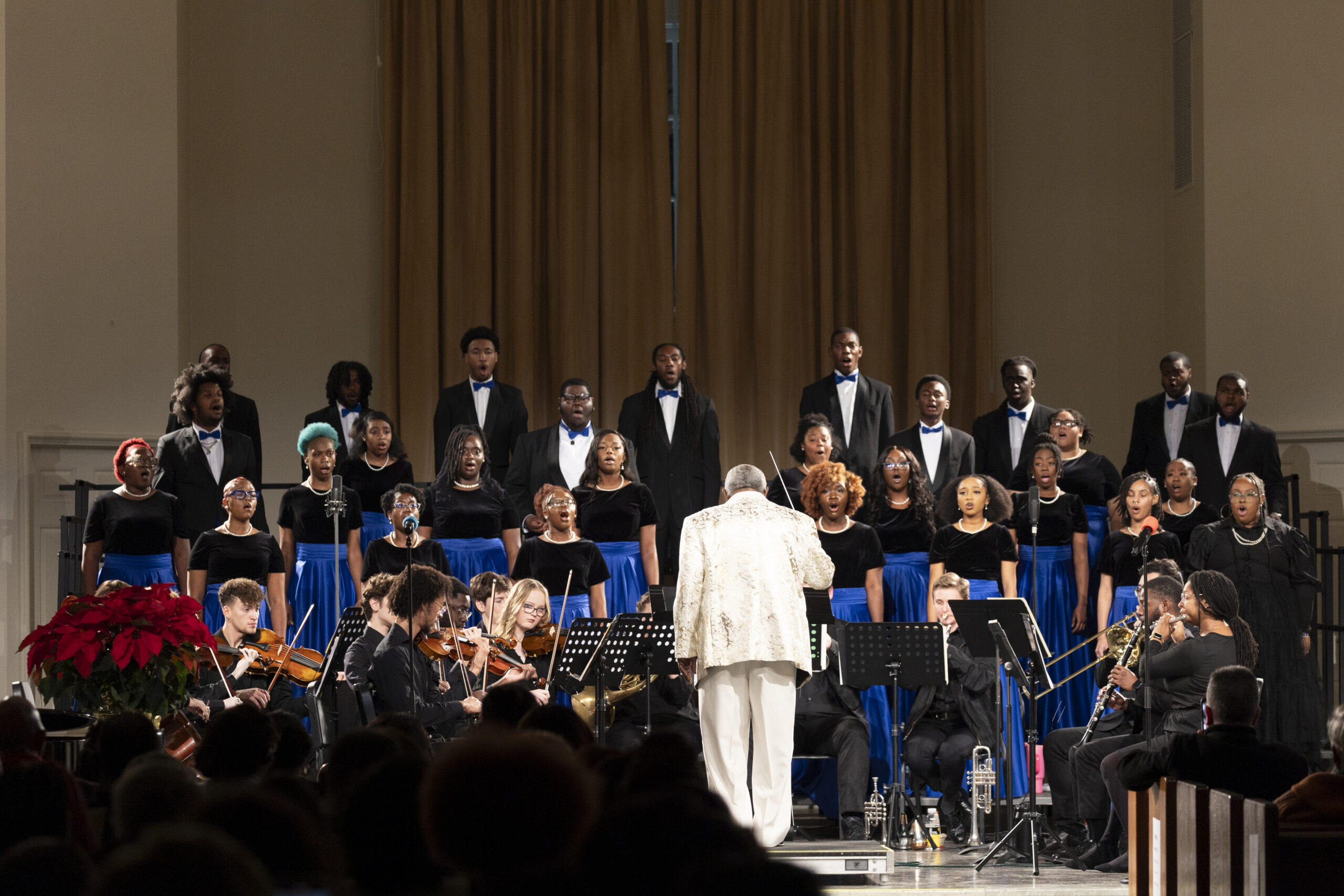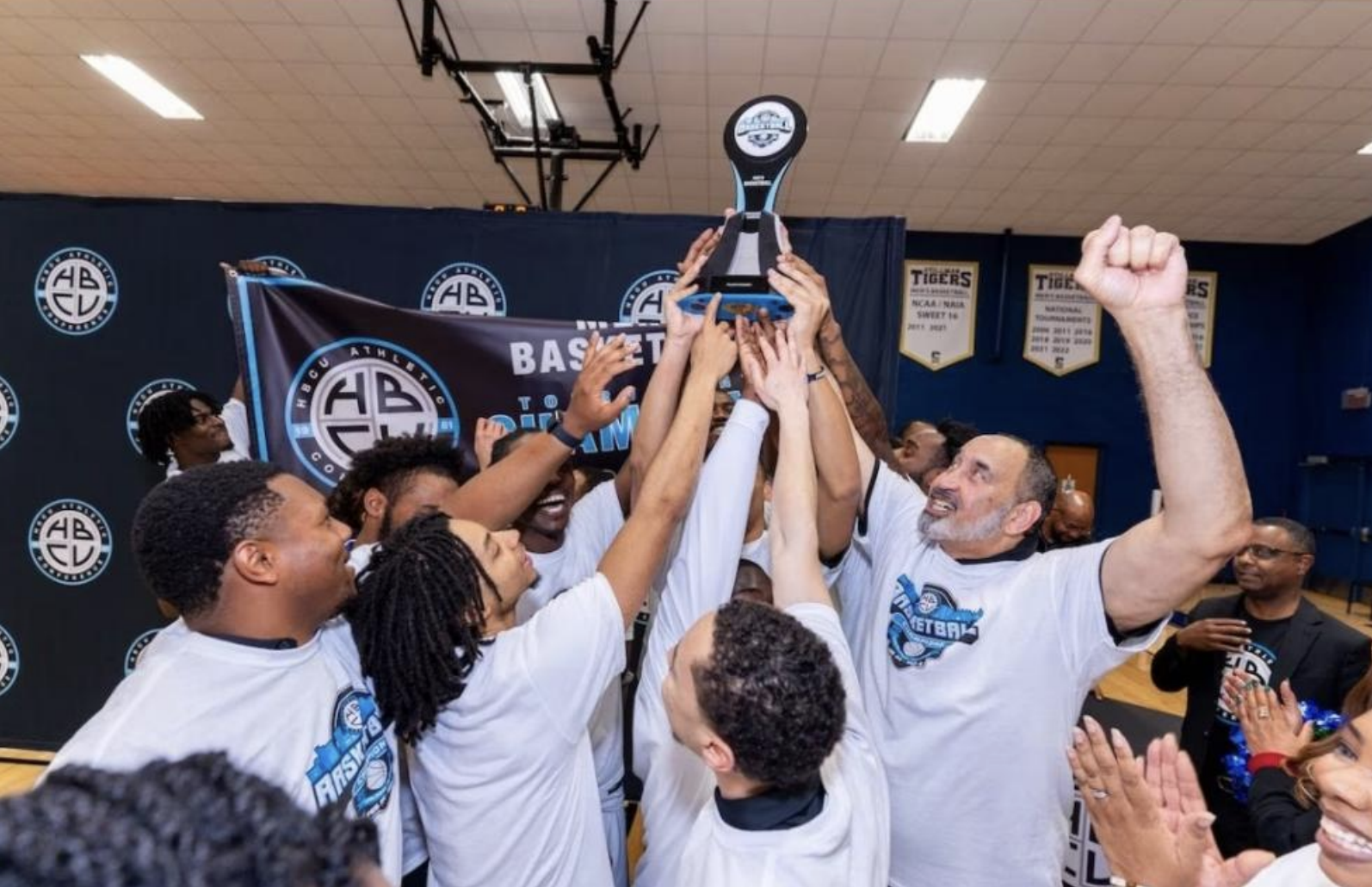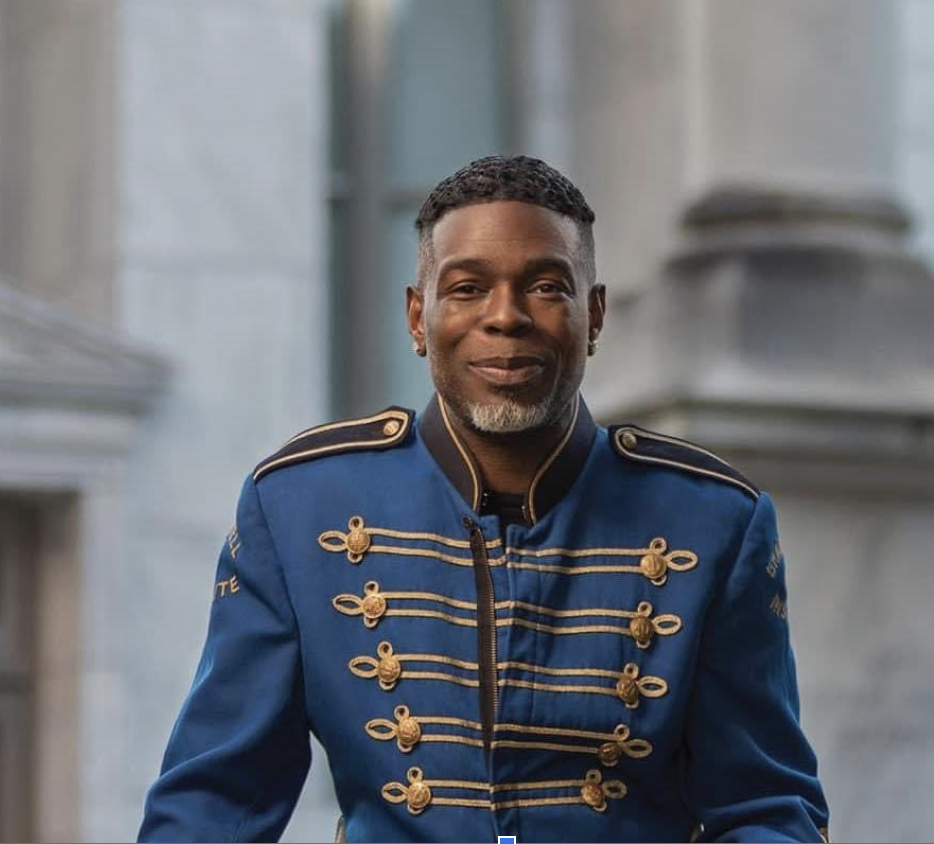Recently named Dillard’s new pre-law program director, Dante Butler is fully aware of the enormity of the opportunity that he has been given; and he feels fully prepared for the task. In this installment of our series, “Dillard Pre-Law: Diversifying the Legal Profession,” we find out more about the program’s new leader and his unorthodox path to the field of law.
A Chicago native, Butler is the son of a mother who picked cotton in Mississippi. The first generation college student eventually found his way to Clark Atlanta University where he earned his bachelor’s degree in business marketing. Butler did not spend his undergraduate years preparing for law school, however. Upon graduation from Clark Atlanta, Butler began working for a Fortune 500 company where he eventually became an operations manager serving college campuses across the country. His last assignment for the company was the Loyola University New Orleans College of Law where he would wind up applying for the nationally renowned law school.
Becoming a law student proved to be the right move for Butler. He was one of 10 students and the only African American to receive the Order of Barristers award upon graduation for superior advocacy. After entering criminal law as an attorney, Butler gave back by coaching Loyola’s Black Law Students Association trial advocacy team to a national championship. Now, with approximately a decade of practicing law under his belt, Butler brings a passion for working with young people to Dillard Pre-Law.
Dillard University (DU): What was your first thought when you saw that Dillard was looking for a pre-law director?
Dante Butler (DB): My first thought when I saw that Dillard was looking for a pre-law director was, “This is it!” I’ve always wanted to be a part of academia; but prior to this position opening up, I had never found anything that piqued my interest. This position checked all the boxes for what I was looking for. Being a graduate of Clark Atlanta University, I wanted to work in that same arena. I knew I wanted to continue working in some capacity in the legal arena. Lastly, I wanted a position where I could have a generational impact on Black students. To me, watching students grow from planted legal seedlings into tall strong oaks would be very rewarding.
DU: Dillard Pre-Law sets out to diversify the legal field. How does that resonate with you?
DB: Dillard setting out to diversify the legal field resonates heavily with me. If there’s one professional field that needs diversifying, it’s the legal field. Black students have so much they could contribute to the legal field, but are too often not given the chance to showcase what they can do. The percentage of Black attorneys in America is 4.7%. This statistic resonates with me more when I read studies that find that among law school applicants who sit for the LSAT, it takes more Black applicants than white applicants to yield 1,000 offers of admissions. It resonated with me more when I read an article in the Florida International University Law Review that found that white students with LSAT scores similar to Black students are more likely to receive offers of admissions. It’s evident that a system has been put in place to keep those Black students from becoming lawyers. I was part of the 4.7% that was allowed to slip through the crack. I wanted to be a part of the solution to widen the door to allowing more Black students into law school. I commend Dillard for putting such a first class program in place like the pre-law program to help address the glaring need for more Black attorneys. I’m happy to be a part of such a movement.
DU: You have this great customer service background and you did it on a high level. What part of that experience transferred to law?
DB: Working as an operations manager, everything was about providing superior customer service to everyone that walked on that campus, from the president of that university to the students. That experience transfers to law because, as an attorney, you’re always wanting to go above and beyond for your client. I’ve lowered my fees as well as gotten out of my bed in the middle of the night to visit a client all in the name of “customer service.” When I had my introductory meeting with the pre-law students I told them that I will treat them like customers and I will do my best to ensure that they are pleased with what the program provides. Customer service isn’t usually the first word a person thinks of in the legal arena, but customer service is about putting out quality work that makes people want to come back for more and tell their family and friends about it. As an attorney, you give your clients your all and you hope you did enough of a job for them to spread the good word about your work.
DU: Talk about your experience preparing for the LSAT. Was it difficult for you or not so bad? Did you feel pressure or were you able to handle it pretty well?
DB: My experience preparing for the LSAT was a little bit difficult. I was a non-traditional student; because when I was applying to law school, it had been five years since I graduated from undergrad. Furthermore, I was working full-time and I had a one-year-old daughter; so, my time to study was limited. I didn’t have any special tutoring or attended any classes. I found a Kaplan book online and studied on my own in my spare time. I didn’t really “feel pressure” in taking the LSAT; because I was of the mindset that if I didn’t do well enough to get into law school, that I still had my full-time job to fall back on. Law school was an idea that was presented to me after I started working at the Loyola College of Law. I was told that, as an employee of Loyola, I would be eligible for a 50% tuition waiver if I was admitted into the night program. I knew I wanted to get some sort of post graduate education after Clark Atlanta University. I always assumed it would be an MBA since that was in my educational background. I took finding employment at a law school and being presented with an opportunity to go for half price as a “sign” from the universe, so I was able to handle it pretty well.
DU: Our students, and presumably other Black students around the country, deal with a lot of stress and anxiety when it comes to taking exams such as the LSAT. What will be a focus of the pre-law program to help students prepare for the LSAT?
DB: A focus of the pre-law program to help students prepare for the LSAT will be preparation. One of the things that will help reduce stress and anxiety for students will be their confidence that the pre-law program puts them in the best position and has well equipped them with the necessary tools to tackle the LSAT. There is a plan in the works to nearly double the number of classroom learning hours during the LSAT bootcamp. We are looking into bringing in LSAT experts that have a proven track record to increase scores to teach our students. We are strategizing on ways to increase their retention of information they learn during the bootcamp so that they will be able to recall that information during the exam. We will also have test anxiety workshops for the students during their LSAT preparation to help them deal with stress. These strategies being implemented will help students for the LSAT.
To learn more about the Dillard University Pre-Law Program, visit www.dillard.edu/prelaw.






